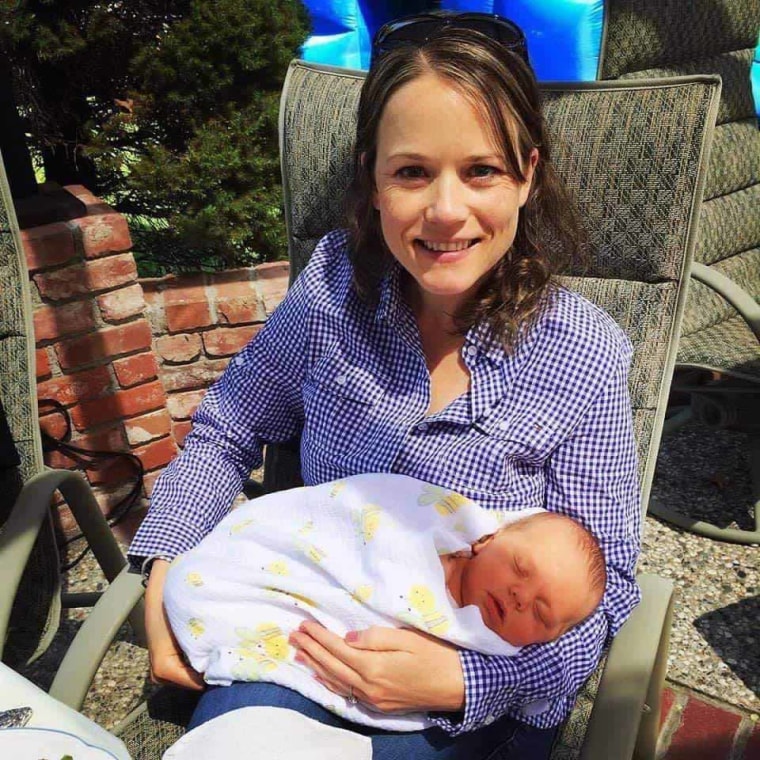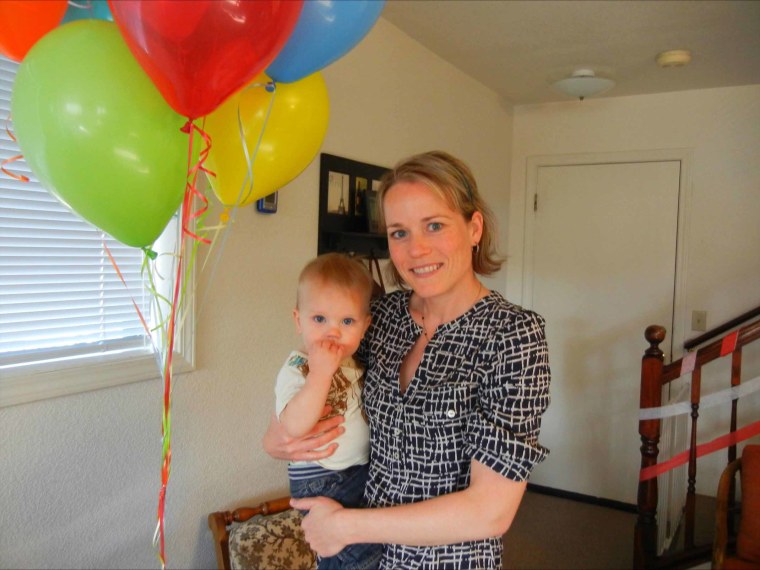A few weeks after my first child was born, I called my obstetrician in desperation. “I don’t feel good,” I said. “I’m not connecting with the baby. I’m so tired, I don’t think I can do this.”
“If you’re having feelings of harming yourself or your baby, you need to go to the mental institution immediately,” she replied. “Otherwise, you are doing fine and it will pass.”
When I hung up the phone, I felt more lost than ever. I felt far too anxious to be away from my baby so soon. If keeping him home with me meant dismissing my increasingly intrusive thoughts and deep sadness, that is what I’d do. I decided at that moment to keep my struggles to myself. My fear of being separated from my baby far outweighed my desire to be honest about how much I was hurting.

That was in 2014, and I spent the next few months reeling in the discomfort and downright terrifying postpartum depression symptoms — like thinking of all the ways my baby could be injured or die, the endless ways I felt like I was failing as a parent, and feelings of hopelessness and longing for a return to feeling human again. The lack of sleep kept me in a constant mental fog. I never felt fully present and everything felt fuzzy and soft. Did that conversation really happen or did I imagine it? Is there something I was supposed to do today? And scariest of all: Is this how I will always feel and if so — did I make the biggest mistake of my life? Wondering if this is just what it means to be a mother gripped my chest and squeezed the air from my lungs. I wanted to feel joyful and fulfilled in motherhood, but here I now was wishing I could go back in time to when I last felt genuinely alive.
It wouldn’t be until several months later, with the encouragement of my loved ones, that I sought a second opinion from a new OB and learned I was struggling with postpartum depression (PPD). On top of that, I was drinking wine to quell the struggles I was feeling inside. No one suggested stepping away from alcohol while dealing with PPD. No one mentioned that alcohol is a depressant and would make my PPD much worse by dysregulating my central nervous system and increasing my anxiety.
In fact, drinking was commonly suggested to me as a remedy for the difficulties of early motherhood. The most common gift I received after childbirth was alcohol. Friends would stop by to meet the baby and hand me a bottle of wine. “You’ll need this,” they’d say with a wink, and we would both chuckle. “Moms self-medicate with booze” is something I even wrote down in my phone’s Notes app, a fuzzy insight I probably typed while breastfeeding in the suffocatingly quiet hours of dawn. Justification for what I deep down could see was creating more problems than solutions.
The most common gift I received after childbirth was alcohol. Friends would stop by to meet the baby and hand me a bottle of wine. “You’ll need this,” they’d say with a wink, and we would both chuckle.
Parenting is hard, but parenting hungover felt impossible. For a new mother who was already low on energy and sleep, adding a throbbing headache or the added fuzziness of a mild hangover to the mix cut like a knife. The only thing that seemed to help the symptoms of exhaustion and combustible dread of never feeling enough was dousing the flames each night with more alcohol, creating a vicious cycle that kept sinking me deeper, and spreading within me faster than I could drink the feelings away.
Culturally, we’ve normalized the correlation between alcohol and motherhood like peanut butter and jelly. Known as “mommy wine culture,” anyone with access to social media has seen the “mommy needs wine” memes or the videos showing Mommy gearing up for the kid’s soccer game by pouring liquor into her tumbler. There’s even a popular newborn onesie that says “I’m the reason Mommy drinks.”

Years later, I understand that mommy wine culture really stems from our cultural undervaluing of the work of mothers, and parents in general. The lack of postpartum support, unaffordable child care costs and unequal distribution of household labor leaves many mothers in a precarious position. We look for something to take the edge off because the burnout of navigating modern motherhood with little to no support drives us to the edge. That’s what I did — until I got real help.
Once I connected with my new OB and was properly treated with an antidepressant that was safe to use while breastfeeding, I could start the next — and my favorite — phase of motherhood: growing a priceless bond with my baby. Recently the U.S. Food and Drug Administration approved the first-ever pill for PPD, which is great news for new mothers, but, in my opinion, isn’t enough. In some of the most important years of a mother’s life, she needs to feel healthy and well, yet it often feels like we dismiss the mother’s needs as soon as the baby is born.
And when a mom does admit she’s struggling, we need to hold her hand and guide her through it. Not dismiss it as “baby blues” and send her on her way, or gaslight her with “mommy needs wine” messaging by implying what she’s feeling is something wine can fix, or suggest a trip to the psych ward without even assessing the situation.
Because if a new mama is suffering, she needs help, not wine. She needs support, not judgment. My early motherhood experience was hard, as it is for so many mothers. I can never go back and relive my child’s newborn stages with a clear head and healthy mind, but maybe my story can help other mothers from making the same mistakes I did. And maybe, as a society, we can shift the conversation from “mommy needs wine” to moms need better support at home, at work, in the doctor’s office and in the community.